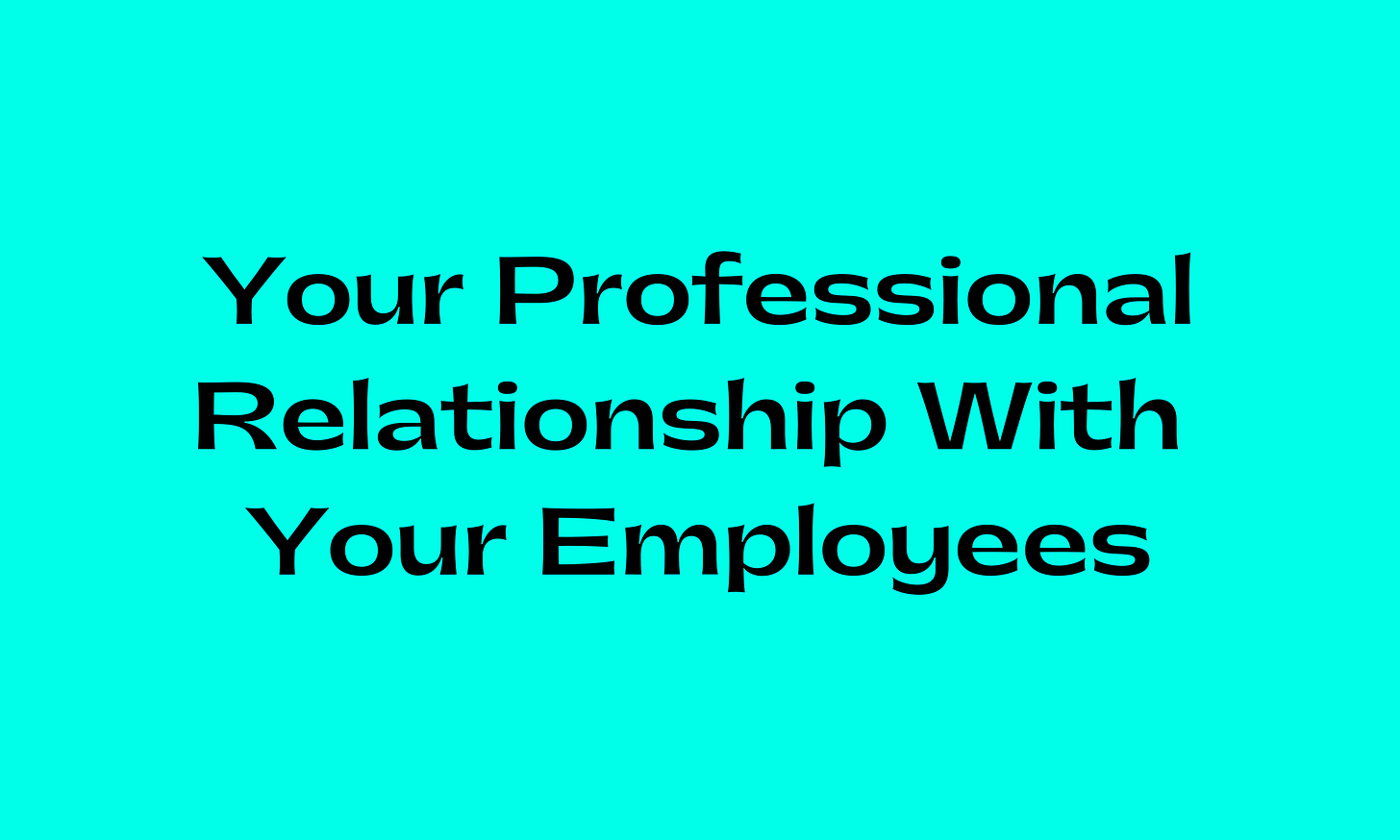Leaders and Organizations Need to Value Internal Relationships and Reputation
Employees recognize and punish insensitive, cold and dehumanizing treatment
Workplaces are comprised of people, at least for now in this ever-developing technological world. Where people interact and collaborate on tasks, goals achievement and missions, there are emotions, feelings and relationships.
While many executive leaders and organizations have at least a mild concern about their reputation with the outside world, not nearly as many care about reputation with their own people. That’s not only an egregious error, it’s highly problematic and dangerous to mutual well-being. It’s not only employees who get hurt.
Case in point, a startling conversation in the social media application, Threads. Here is the discussion starter:
“I STOPPED being LOYAL to jobs when one day my coworker didn’t show up to work unexpectedly & management was constantly calling to fire her for a no-call no-show.
“They actually even called my co-workers’ mom to let her know her daughter was fired, only to find out she’d actually died in her sleep from an asthma attack, which is the reason she didn’t show up to work. God rest her beautiful soul.”
Notice how the person posting their observation and experience was emotionally impacted and the conclusions and judgment they developed:
“Stopped (written in all capital letters) being loyal (also written in all capital letters).”

Management’s lost a tremendous amount of respect, benefit of the doubt, trust and commitment because of its lack of humanity, professionalism, curiosity and concern for one of its employees (a human being) and that employee’s family.
The company’s anger after it jumped to conclusions was not appreciated.
Reputation? Now dirt. Or if you prefer, mud. Or as some people say, “trash.”
That person’s comment inspired other people to post shared experiences. Fortunately for employers, the former employees didn’t “name names.” Yet the comments weren’t pretty. Maybe this type of misbehavior happens much more often than we know.
Here’s a handful-plus more headshaking stories (with a final word afterward):
“My sister was on her way to work but was running late. Her manager was threatening to fire her if did not show up at a certain time. My sister ended up dying in a car crash that same morning. The day of her funeral, they didn’t even send flowers.”
"I found out my mom passed while I was at work. I left early and had my scheduled cleared for the week. My store manager called me the next morning and asked where I was and why I wasn’t at work; I had clients waiting and would receive a write up for not calling in. I reported her to HR and they asked me what I wanted them to do since she technically wasn’t breaking any rules or laws.”
“My son got fired in his first 90 days. We lived in a quickly worsening DV (domestic violence) situation. He didn't feel safe leaving me alone with his stepdad one night. He told them and they didn't care. Ultimately, a few days later we packed and ran. He's been at a much better job for 4 years now.”
“I once refused to fire an employee that was an army reservist on 9/11/01 because he was called up for active duty. I ended up being fired for refusing to fire him and he was still fired.”

“My coworker died. The day before, she told me the job was killing her. She never missed without notice. So after 30 minutes of not showing up we knew something was wrong. She always said ‘If I die, he won’t care. He will continue to work like nothing happened.’ I promise you that’s EXACTLY what he did.”
“I worked with a man name Frank who was a supervisor at a plant. He worked so hard, had so much stress and when we got a new operations manager she treated him rudely and pushed him to work harder. When he had a heart attack and died she told us the family was having a private funeral.
“I called the funeral parlor and they said it wasn't private. There were hundreds of people there. (The supervisor) lied so we wouldn't take time off work. The family was baffled that only a few people from his work came.”
“I was a warehouse supervisor and got to hear how they really talk about employees in those corporate meetings. Guess they thought I wasn’t black or had no backbone. I informed everyone, quietly, about their true feelings and we all quit one by one, me being the last to leave (helped folks get jobs first) and now that place is out of business.”
Most people would like agree that the above-mentioned employer behavior is an organization operating “below the line.” They are not treated their people as human beings. They are treating them as machines.
Of course, leaders have responsibilities and stress. It’s possible that employees are putting “spin” on their stories or they may have been irresponsible before the events that were described.
Yet it is also possible and maybe more likely that some people in authority and leadership are not conducting themselves professionally and with humanity and thus creating distrust, ruining relationships and badly harming their personal and organizational reputation. That’s short-sighted thinking and behavior.
A question to ask is how many of the leaders and organizations are learned from their mistakes instead of projecting blame?
It’s important to value trust, stakeholder relationships, respectful communication and reputation within the company. Influencing or persuading employees, especially through change management or hard times becomes arduous once you stop caring.
Michael Toebe is a specialist for trust, risk, relationship, communications and reputation at Reputation Intelligence - Reputation Quality. He serves individuals and organizations by helping them further build, protect, restore and reconstruct reputation.
Subscribe for free or become a paid subscriber for extra benefits.
Follow Reputation Intelligence on Twitter/ “X”
Follow Reputation Intelligence on the Medium platform for more stories/insights







